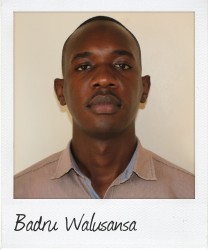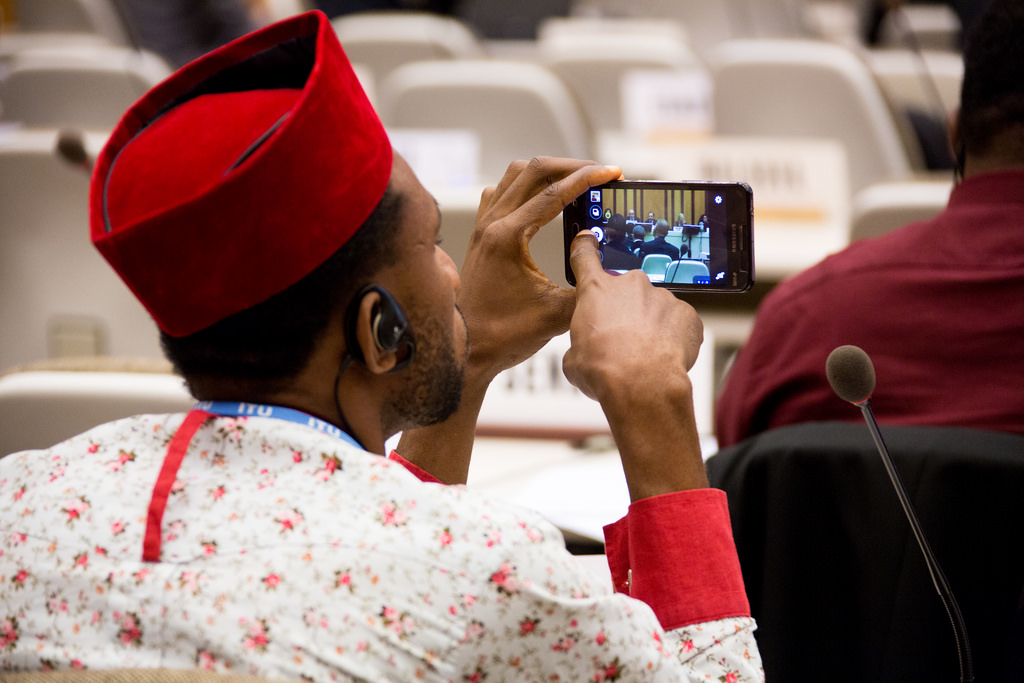“Government should support ICT innovation”
June 26th, 2017 We are constantly changing the way we deal with the world, thanks to internet and communications technology. Badru Walusansa, 26, a Commonwealth Correspondent from Kampala in Uganda, argues for government support that will boost home-grown talent and help drive the innovation that provides new ideas and growth.
We are constantly changing the way we deal with the world, thanks to internet and communications technology. Badru Walusansa, 26, a Commonwealth Correspondent from Kampala in Uganda, argues for government support that will boost home-grown talent and help drive the innovation that provides new ideas and growth.
The unprecedented growth of innovation in the world today presents an array of hope for a better and more simplified society.
Imagine using an internet and communications technology (ICT) application to forego the stress and discomfort that comes with standing in long queues to purchase commodities in the market, at the grocery or pharmacy.
ICT innovations have made complex processes more available and accessible to the population, especially in the field of health, travel, education, trade and commerce.
Recently, a group of Makerere University graduates code named Team Matibabu made a headline story by winning USD$10,000 Extra Funding at the iSHOW Competition in Kenya. The group invented a non-invasive diagnostic kit used to detect malaria called Matibabu. There are possibly many innovators like Matibabu that are working at developing and marketing their content, but at the same time are struggling due to limited financial support.
In the same week as the creative ICT students made headlines for their prize-winning innovations, the youthful Mark Zuckerberg, founder of Facebook, delivered a speech to the 2017 graduands of Harvard University in which he encouraged them to become more creative and to aim at finding innovative solutions to end poverty and disease. At age 19, Zuckerberg invented Facebook to connect a small community at Harvard. However, since then his innovation turned into the largest social media site currently in use, with over one billion people connected.
I am compelled to think that so many innovators in Uganda have ideas that are similar to or even better than those of Zuckerberg, however, what remains lacking are the strategic steps to boost and empower such innovators. We therefore need to harness the potential of promising innovators if we are to better position our country according to the dictums of the modern age, which is highly driven by ICT innovations.
In 2016, Uganda’s Ministry of Information Communication and Technology (ICT) promised to introduce an innovation fund whereby innovators would access financial support to facilitate development and marketing of their creations. This was a step in the right direction, as it would streamline the art of using ICT tools to spur innovations. Financial institutions such as banks interested in supporting or boosting ICT development would be able to institute specially-focussed loans or credit that could be advanced to innovators with outstanding ideas.
Lastly, government should make internet resources free or more affordable to the population, because through the use of internet, innovators are able research new ideas and also find access to wider markets for their goods or services.
Reach me at badruwalu@gmail.com
photo credit: ITU Pictures ITU Expert Group Meetings on Telecommunication/ICT Indicators (EGTI) and Expert group on ICT Household Indicators (EGH) via photopin (license)
………………………………………………………………………………………………………………
About me: I am a human rights activist, academic and writer in the local dailies. I was part of Uganda’s largest election observation group, CEON-Uganda and currently work as a Project Assistant M&E at the Legal Aid Service Providers’ Network (LASPNET). My passion is in writing and I have authored several articles on different topics in the Weekly Observer, Daily Monitor, New Vision and Independent Magazine.
…………………………………………………………………………………………………………………
Opinions expressed in this article are those of the author and do not necessarily represent the views of the Commonwealth Youth Programme. Articles are published in a spirit of dialogue, respect and understanding. If you disagree, why not submit a response?
To learn more about becoming a Commonwealth Correspondent please visit: http://www.yourcommonwealth.org/submit-articles/
………………………………………………………………………………………………………………






